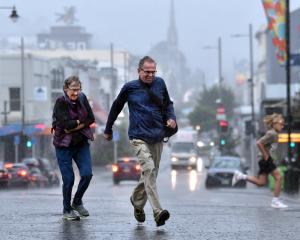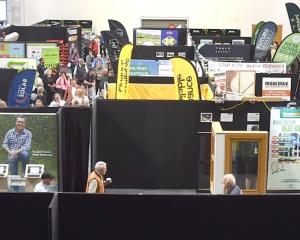It was inevitable marine mammals would be lost unless scientists could be ''smart'' about the allocation of precious resources, Duke University Nicolas School of the Environment marine biology professor Dr Andrew Read said yesterday during the first day of the 20th Biennial Conference on the Biology of Marine Mammals held at the Dunedin Town Hall.
About 1200 marine mammal scientists from around the world are in Dunedin this week for the conference, which will move to the University of Otago campus for the rest of the week.
Its theme of marine mammal conservation ran through the keynote addresses given yesterday.
Dr Barbara Taylor, of the Southwest Fisheries Science Centre, said in the opening address conservation challenges included by-catch in small-scale fisheries, habitat degradation from overfishing, environmental contamination and global climate disruption.
It was not possible to monitor all species so scientists would need to prioritise vulnerable species and make that work as effective as possible, she said.
So, the next century would be critical for conservation as human needs and maintaining the natural world came into conflict.
Scientists also needed to engage educators, media specialists and others in the cause as well as informing the public about how they could help save species.
Teams would become necessary and perseverance would be important, as would having a single voice against issues such as non-industrial gill netting.
''Solutions will take a long time. Every opportunity to infect people with enthusiasm needs to be taken.''
However, the public support conservation had enjoyed in the past was now in short supply.
''We need to engage the public in conservation issues.''
It was a challenge to capture that attention when there was ''zero body count'', a lack of simple ''villains'', such as major industrial organisations, and no simple story, she said.
Added to that was when evidence of harm was likely to be indirect and a population that was declining or not recovering was ''not sexy science''.
Dr Read said modern conservation problems were ''wicked'' problems, complex, multi-faceted issues, often linked to broader social problems such as food security and poverty, without a simple solution. One example was climate change.
Scientists needed to recognise their limitations as natural scientists and realise they did not know the first thing about changing human behaviour.
Former Labour Cabinet minister Pete Hodgson also spoke on the relationship between science and public policy as it related to his experience dealing with the conservation problem of by-catch of Maui dolphins in fisheries.














